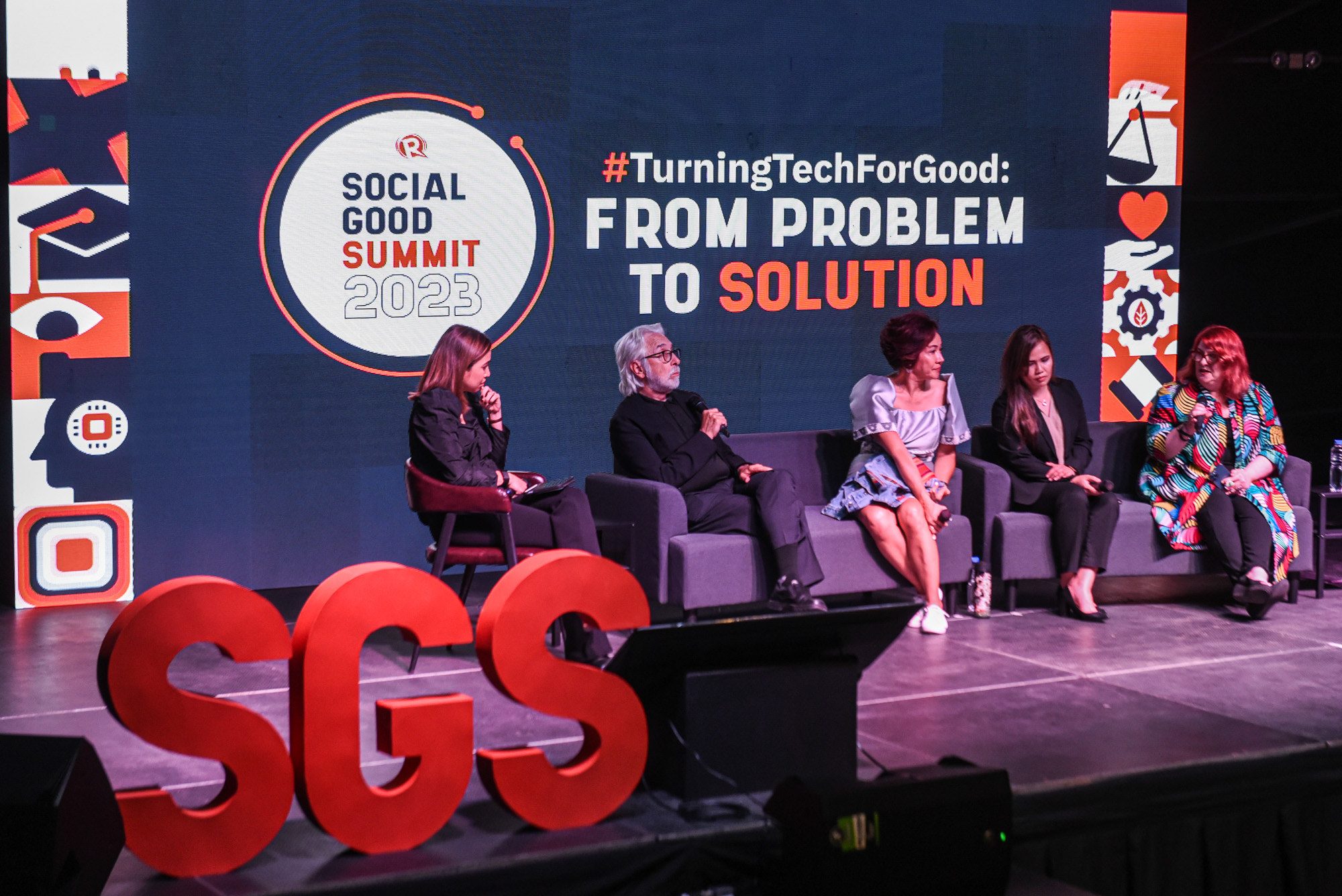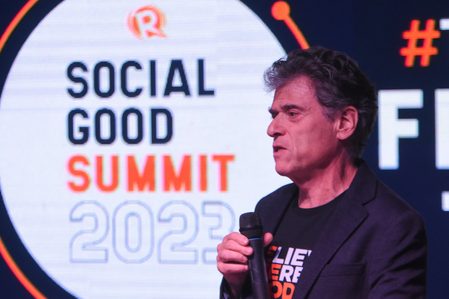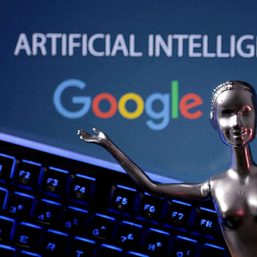SUMMARY
This is AI generated summarization, which may have errors. For context, always refer to the full article.

MANILA, Philippines – Amid rising concerns about artificial intelligence’s (AI) role in society, experts emphasized the need for dialogue and collaboration among various stakeholders to align differing views on AI, thus preventing its potential misuse and exploitation.
This was a key point discussed during a panel session at Rappler’s Social Good Summit (SGS) 2023, held on Saturday, September 16.
During her talk, Aboitiz chair in data science Erika Fille Legara first underscored the challenge of navigating the technology landscape and anticipating the full range of potential negative consequences that may result from the use of AI and new technology.
A key issue raised in the conversation pertains to the diminishing trust within the community due to the algorithms employed by big tech corporations.
“So it’s really tough. But from the perspective of a data scientist, what’s really critical as well is to understand that there is such unintended consequences,” she said.
Legara added that for organizations pursuing digital transformation, the main hurdles aren’t technology or data but rather internal resistance to change, primarily rooted in the organization’s culture and among its employees.
“Having honest conversations and not alienating as well would really help. So what I’m saying [is that], we need everybody’s help in a sense – for example, Maria and Rappler somehow helps us be exposed to how we can further use tech for good,” Legara added.
Ruth Yu-Owen, co-founder of Connected Women, underscored her company’s commitment to collaboration by providing online skills development and remote work opportunities for women.
“You need to get everyone together. It’s all hands on deck. So how we do it is we partner with private sector companies, government agencies, government, national government, local government units, so that we can get to the grassroots, we can’t do this alone,” Owen explained.
In working with the government to regulate the use of AI and prevent exploitation by bad actors, Julie Posetti, the global director of research at the International Center for Journalists, stressed the necessity of having intelligent regulation.
“Every government wants to basically manage and control the information space. So think twice when you start going down the road of regulating the information space. Not that it shouldn’t, but how to do it right,” she said.
Posetti pointed out how important it is for government officials to work together and understand AI well, to prevent impulsive regulatory decisions when supervising its utilization.
“Because when they [government] heard from this one person that AI is evil, suddenly, okay, we cannot use AI, we have to start regulating things without really properly understanding how to balance it, the perils and the promises of AI,” Posetti explained.
Despite her concern about the capacity of generative AI to generate more easily believable disinformation content, Posetti hoped ongoing efforts led by ethical and knowledgeable experts will result in effective safeguards to protect society and uphold human rights in the face of this challenge.
“I trust that there are very brilliant people working hopefully this time, as distinct from the social web’s development, working hopefully this time with a human rights framework to ensure that the best possible attempts are made to defend our societies and humans,” she said.
The SGS was attended by key leaders in tech, business, and civil society, with notable speakers including the 67th US Secretary of State Hillary Rodham Clinton, Philippine Supreme Court Chief Justice Alexander Gesmundo, Facebook whistleblower Frances Haugen, and vice president for News at Google Richard Gingras.
The sessions centered around the theme “Turning Tech For Good: From Problem to Solution,” focusing on the actions that institutions, communities, companies, and various sectors can take to create an environment conducive to tech reform and mitigating further societal harm. – Rappler.com
Add a comment
How does this make you feel?






There are no comments yet. Add your comment to start the conversation.